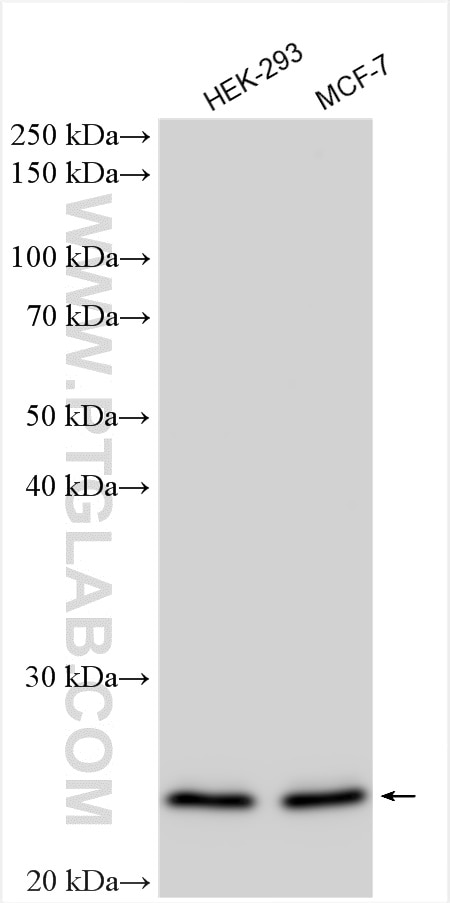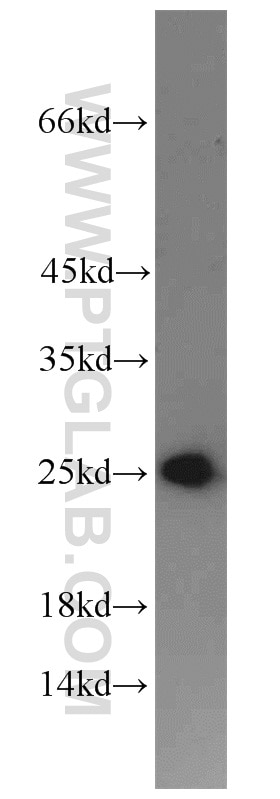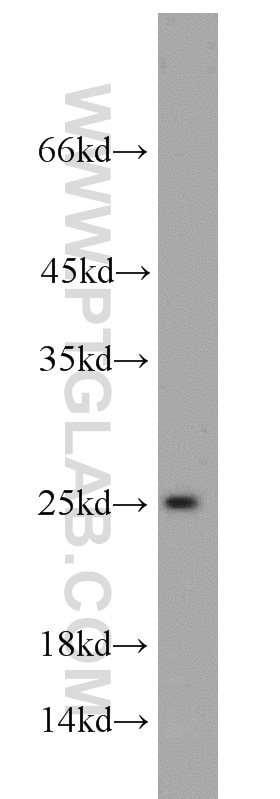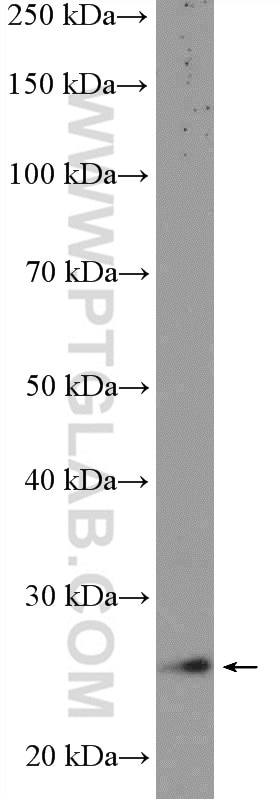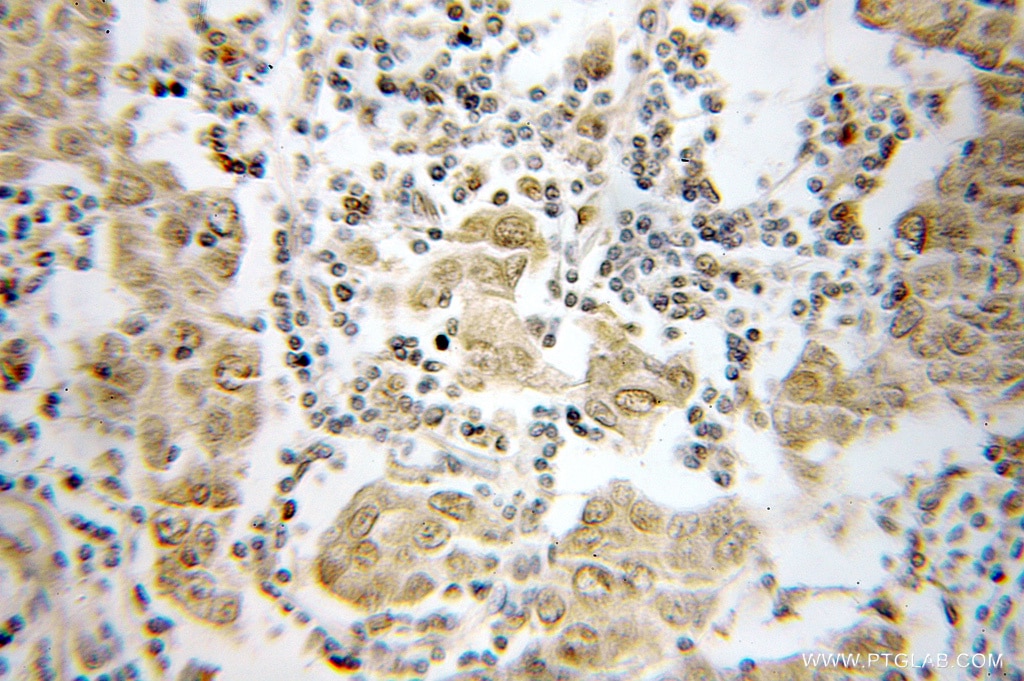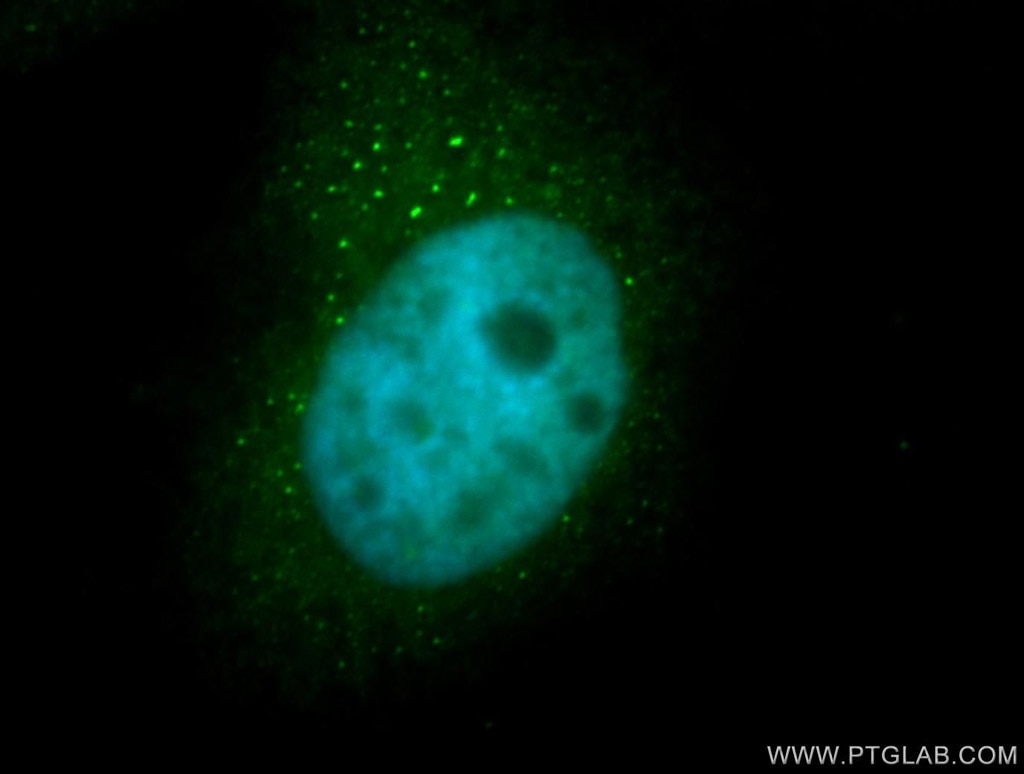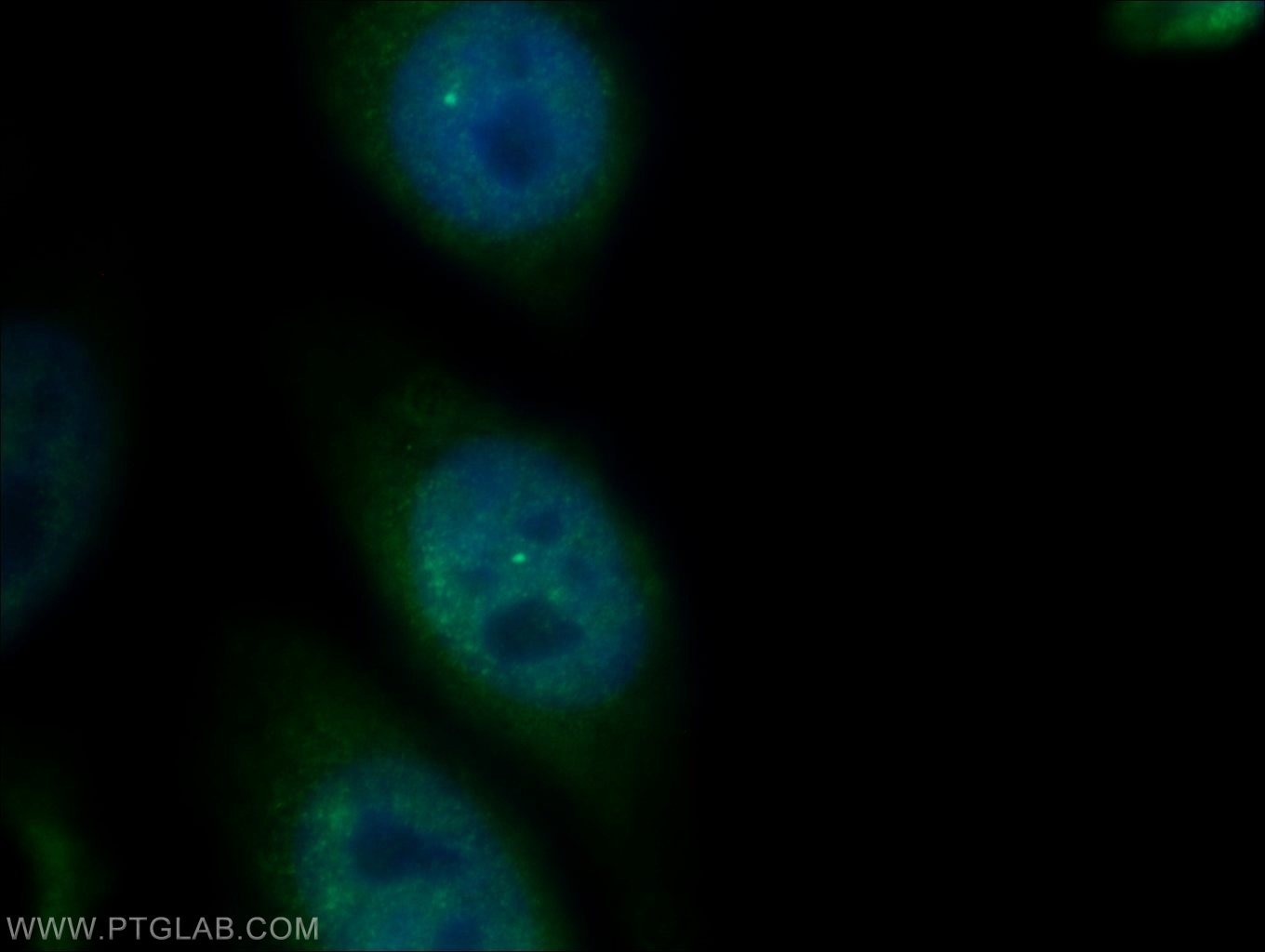- Featured Product
- KD/KO Validated
PSMB4 Polyclonal antibody
PSMB4 Polyclonal Antibody for WB, IF, IHC, ELISA
Host / Isotype
Rabbit / IgG
Reactivity
human, mouse and More (2)
Applications
WB, IF, IHC, ELISA
Conjugate
Unconjugated
Cat no : 11029-1-AP
Synonyms
Validation Data Gallery
Tested Applications
| Positive WB detected in | HEK-293 cells, mouse skeletal muscle tissue, human placenta tissue, human skeletal muscle tissue, MCF-7 cells |
| Positive IHC detected in | human breast cancer tissue Note: suggested antigen retrieval with TE buffer pH 9.0; (*) Alternatively, antigen retrieval may be performed with citrate buffer pH 6.0 |
| Positive IF detected in | MCF-7 cells, HepG2 cells |
Recommended dilution
| Application | Dilution |
|---|---|
| Western Blot (WB) | WB : 1:2000-1:10000 |
| Immunohistochemistry (IHC) | IHC : 1:20-1:200 |
| Immunofluorescence (IF) | IF : 1:20-1:200 |
| It is recommended that this reagent should be titrated in each testing system to obtain optimal results. | |
| Sample-dependent, Check data in validation data gallery. | |
Published Applications
| KD/KO | See 2 publications below |
| WB | See 5 publications below |
| IHC | See 1 publications below |
| IF | See 1 publications below |
Product Information
11029-1-AP targets PSMB4 in WB, IF, IHC, ELISA applications and shows reactivity with human, mouse samples.
| Tested Reactivity | human, mouse |
| Cited Reactivity | human, mouse, monkey, pig |
| Host / Isotype | Rabbit / IgG |
| Class | Polyclonal |
| Type | Antibody |
| Immunogen | PSMB4 fusion protein Ag1500 |
| Full Name | proteasome (prosome, macropain) subunit, beta type, 4 |
| Calculated Molecular Weight | 29 kDa |
| Observed Molecular Weight | 25 kDa |
| GenBank Accession Number | BC010088 |
| Gene Symbol | PSMB4 |
| Gene ID (NCBI) | 5692 |
| RRID | AB_2172040 |
| Conjugate | Unconjugated |
| Form | Liquid |
| Purification Method | Antigen affinity purification |
| Storage Buffer | PBS with 0.02% sodium azide and 50% glycerol pH 7.3. |
| Storage Conditions | Store at -20°C. Stable for one year after shipment. Aliquoting is unnecessary for -20oC storage. 20ul sizes contain 0.1% BSA. |
Background Information
PSMB4(Proteasome subunit beta type-4) is also named as PROS26 and belongs to the peptidase T1B family. The proteasome is a multicatalytic proteinase complex which is characterized by its ability to cleave peptides with Arg, Phe, Tyr, Leu, and Glu adjacent to the leaving group at neutral or slightly basic pH. The human protein PSMB4 is known mainly as an interaction partner for several proteins, suggesting an important function of binding not only to the lid, but also to the 20 S core of the proteasome. PSMB4 might be a major site for proteasome regulation, where signals from the outside might be transduced to the protease activities inside(PMID:15660529 ). The full length 30 kDa protein has a propeptide of 45 amino acid.
Protocols
| Product Specific Protocols | |
|---|---|
| WB protocol for PSMB4 antibody 11029-1-AP | Download protocol |
| IHC protocol for PSMB4 antibody 11029-1-AP | Download protocol |
| IF protocol for PSMB4 antibody 11029-1-AP | Download protocol |
| Standard Protocols | |
|---|---|
| Click here to view our Standard Protocols |
Publications
| Species | Application | Title |
|---|---|---|
Cancer Res Comparative oncogenomics identifies PSMB4 and SHMT2 as potential cancer driver genes. | ||
J Biol Chem Hepatocyte-specific Wtap deficiency promotes hepatocellular carcinoma by activating GRB2/ERK depending on downregulation of proteasome-related genes | ||
Oncol Rep PSMB4 overexpression enhances the cell growth and viability of breast cancer cells leading to a poor prognosis.
| ||
J Virol PSMB4 Degrades the Porcine Reproductive and Respiratory Syndrome Virus Nsp1α Protein via the Autolysosome Pathway and Induces the Production of Type I Interferon
| ||
JHEP Rep Downregulation of hepatic METTL3 contributes to APAP-induced liver injury in mice |
